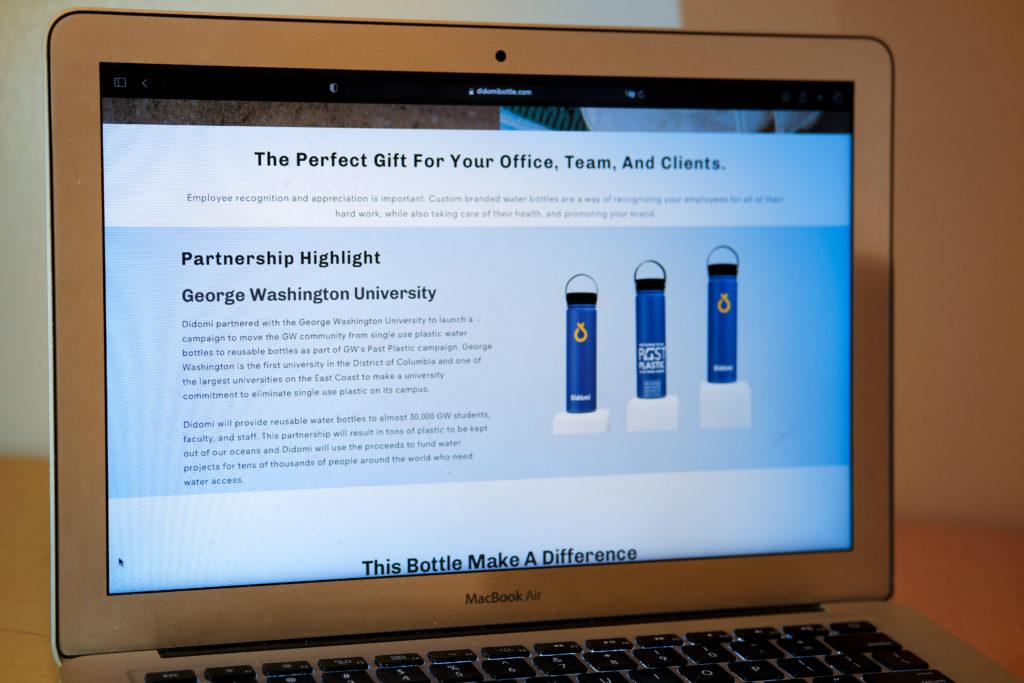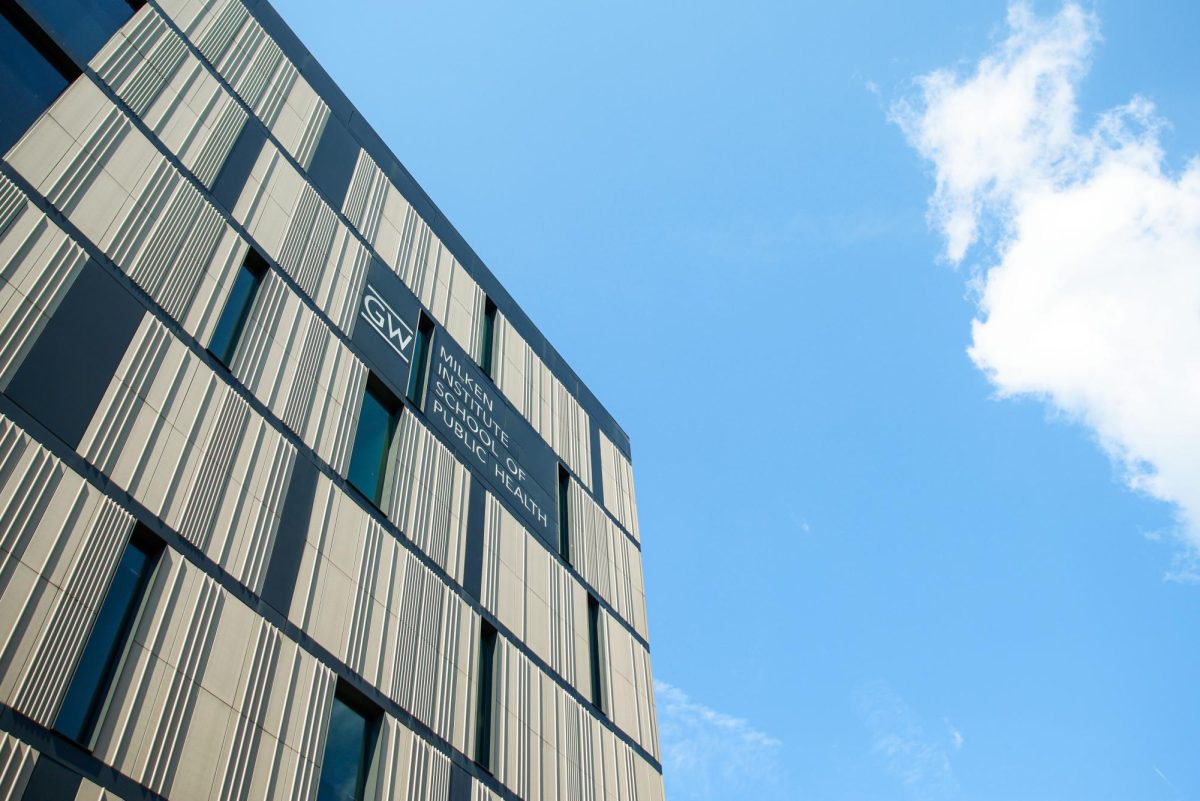Updated: Jan. 24, 2022 at 10:54 a.m.
A social enterprise dedicated to combatting water crises will supply the University with 26,000 reusable water bottles this spring to advance GW’s commitment to eliminate single-use plastics on campus.
Didomi, a reusable water bottle company, plans to provide the water bottles to GW, which will distribute the bottles to community members at the COVID-19 testing center this spring, Kimberly Williams, the stakeholder engagement associate in the Office of Sustainability, said in an email. Williams said GW’s investment, which will fund water accessibility projects in other countries, will help students, faculty and staff find reusable alternatives to plastic bottles to align with GW’s ongoing initiative to reduce plastic waste and install water bottle refilling stations on campus.
The University announced its commitment last year to eliminate single-use plastics, later announcing plans to install a new line of water-bottle filling stations and remove plastic bottles from vending machines as the policy went into effect in July. Williams said officials are installing at least one water bottle filling machine in every residence hall and academic building on campus, including other outdoor locations.
“As part of this culture change on campus, GW is partnering with Didomi to provide a reusable bottle to all students, staff and faculty on campus,” Williams said in an email. “The reusable water bottle is branded with the logo for GW’s Past Plastic campaign, as well as the Didomi company logo. This co-branding represents both GW and Didomi’s commitment to reduce plastic waste and promote access to fresh water.”
Williams declined to say on how much money the University invested in the initiative.
The University is the first in the District and one of the largest schools on the East Coast to implement a single-use plastics elimination policy, which prohibits community members from purchasing items like plastic bottles, utensils and shopping bags for events and to have them use available alternative products instead.
Anaa Jibicho, one of the co-founders of Didomi, said the University’s investment in the bottles will help provide more than 25,000 people in countries like Ghana and Uganda with water access in the next 10 years. Didomi plans to use the proceeds from its water bottle sales to build factories and employ people affected by water crises in African countries, according to its website.
Jibicho said the company ensures that the 24 oz. water bottles lined with double-wall stainless steel are “responsibly” made in China.
“We hope to be on campus in the next few months, if health conditions permit, to help with the distribution of the bottles and share about the water crisis and the impact we have been able to make with our partnership with GW,” he said.
Tara Scully, the director of the sustainability minor program, said GW’s new water bottle supply from Didomi could help officials continue removing plastics from locations like vending machines and installing more water bottle stations on campus.
Scully said GW’s investment in the water bottles will fund Didomi’s current projects to increase water accessibility in African countries like Uganda and reduce water-related poverty and location issues.
“I think that this type of strategy of partnering with a company that is trying to tackle both environmental issues but also equity issues related to sustainability is valuable in supporting GW’s commitment to sustainability,” she said.
Robert Orrtung, the director of research for sustainability initiatives, said the University should try to purchase products from reputable companies known for their commitments to sustainability when funding environment-friendly initiatives.
The Board of Trustees’ environmental, social and governance task force urged the University to address the environmental impact of single-use plastic use on campus in June 2020, which prompted then-University President Thomas LeBlanc to enact the Past Plastics policy.
Orrtung said the recent collaboration could serve as a model for the University to invest in more sustainability-focused companies and highlight its effort to be sustainable with more environmentally friendly products.
“We’ve made these commitments at the Board of Trustees level, so I think it would be good to know the extent that we can partner with such companies, and hopefully GW students will be creating these companies and they become partners for the university in the future,” he said.
Zachary Blackburn contributed reporting.
This post has been updated to correct the following:
The Hatchet incorrectly reported that Williams said officials have installed at least one water bottle filling station in every residence hall and academic building on campus, including other outdoor locations. Williams said this process is still ongoing. We regret this error.








